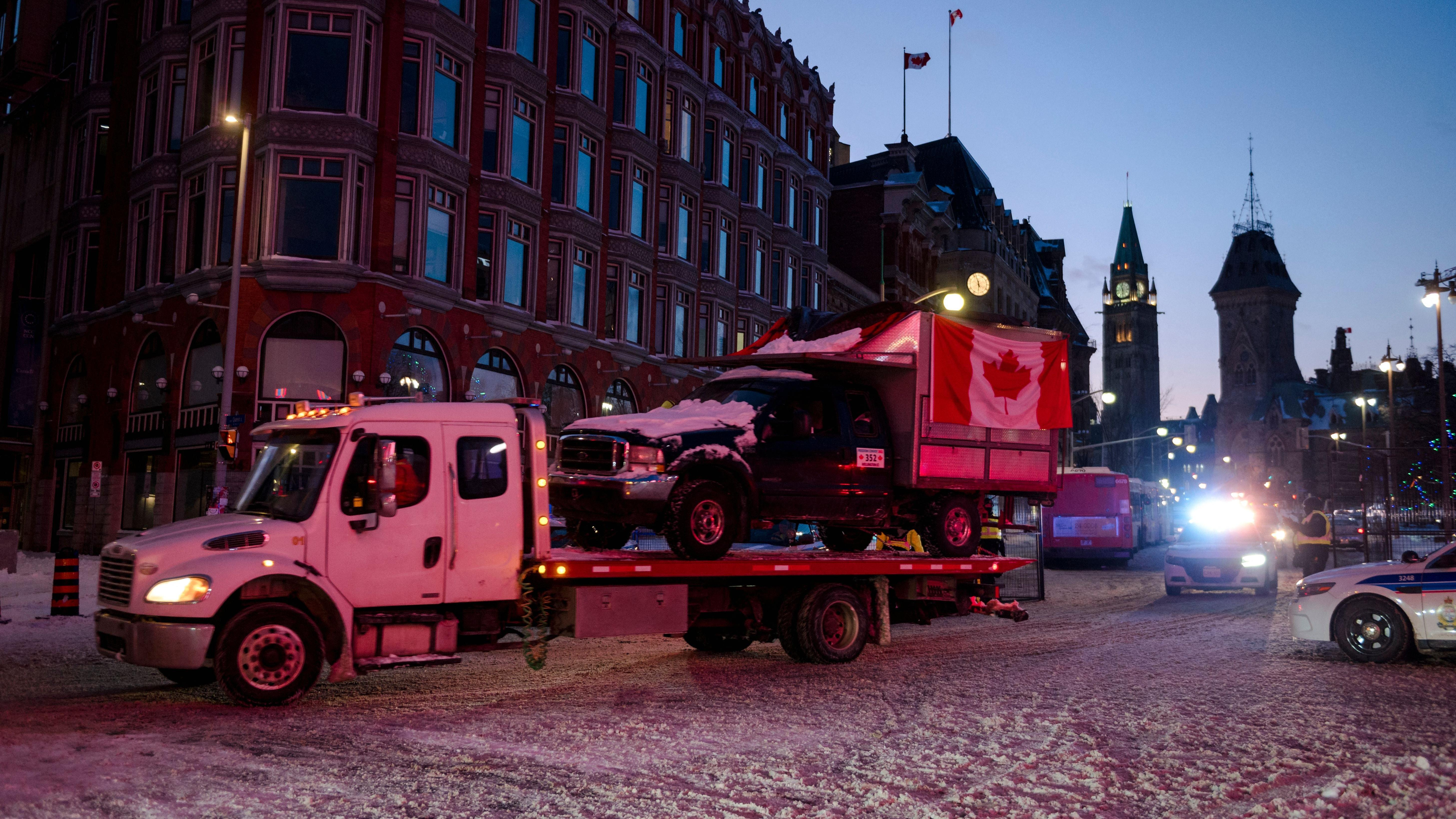Ottawa Mayor Suggests Selling Vehicles Seized From Freedom Convoy To Pay Enforcement Costs
At least 76 vehicles were towed by police over the weekend
As the diesel exhaust clears from the streets of Ottawa after a three-week siege, the natural question on politicians minds is, how are we going to pay for all of this? Ottawa mayor Jim Watson has an idea: Put up all of the trucks seized by police for auction, the proceeds going towards footing the bill for the siege.
Things in Ottawa are certainly not normal yet. The downtown area remains blocked by some 100 police check points, but the streets are now clear and quiet for the first time since the Freedom Convoy arrived in Ottawa on Jan. 28. Police finally cracked down on the protest over the weekend, waiting for the Prime Minister to initial special powers granted by the Emergencies Act to do what they've had no problem doing to left-leaning or First Nation protests in the past. The escalation of violence at a similar protest in Coutts, Alberta may have also motivated law enforcement to enforce the law.
It was originally reported that the protest was costing Ottawa $800,000 CAD a day, but that cost likely spiked during the two-day crackdown that eventually ended the protest. From CTVNews:
Speaking to CTV News Ottawa, Watson said this could be a chance to recoup some of the costs of the massive police operation.
"I've asked our city manager, for instance, how can we take possession of all of those trucks that have been towed away?" Watson said on CTV News at Six. "How can we confiscate those and sell those trucks to help pay for some of our costs? I don't think the taxpayers of Ottawa should be paying for this multi-million dollar bill that we're going to be saddled with because of the irresponsibility and the illegal activities of a bunch of truckers and others who showed little regard for our community and its people."
Earlier in the day, the mayor said he believed the federal Emergencies Act would allow for such action.
"These people have cost the taxpayers of Ottawa millions and millions of dollars. That's only police costs. That's counting all of the extraordinary costs the city has to absorb. Bylaw, fire, paramedics, public works people," he said. "It shouldn't be up to the taxpayers of Ottawa to pay for these extraordinary costs through their property taxes. We should ding those people who have caused this chaos."
Seizing trucks wasn't the only tool used to move protesters along. Nearly 200 people were arrested and charged with 391 different crimes ranging from mischief to assaulting a police officer, according to the Ottawa Citizen. Police also suspended licenses, both regular and commercial, of those who remained in the "red zone" around Parliamentary Hill following two days of warning the crowd to disperse.
Some of the protesters have regrouped to farms outside of the city. Police are on high alert to keep protesters from retaking the downtown area. Some streets have reopened, but many remain closed as police monitor smaller remaining protests and gathering sites.
